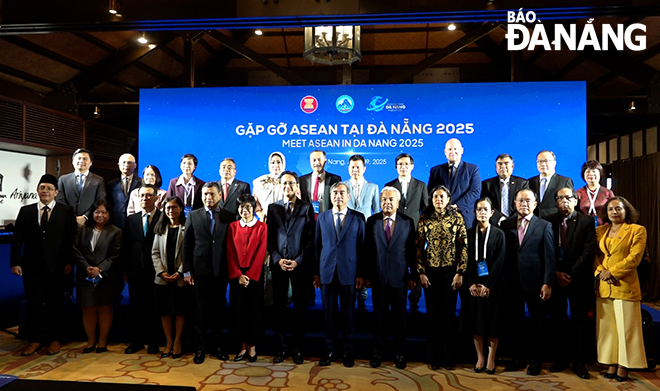Loans for fishermen a big priority
National Assembly (NA) deputy and member of the NA Economic Committee Le Nam spoke to Hai Quan (Custom) newspaper about helping fishermen build the country's fleet of modern fishing boats.
* Decision 67/2014 has been underway for 10 months now but Vietnamese fishermen are still waiting for its implementation. What is your opinion regarding the pace of the decision's execution?
It was a timely decision to support Vietnamese fishermen during the East Sea crisis when the Chinese Haiyan Shiyou-981 deep water drilling platform was moved into Viet Nam's sovereign waters.
The decision aimed to support Vietnamese fishermen, Viet Nam's Coast Guard and Viet Nam's Fisheries Resource Surveillance, but according to a report made to the NA, only 10 percent of the NA-approved fund of 16 trillion VND (740 million USD) was disbursed.
Fishermen are waiting for the fund to improve fishing capacity and help with safeguarding the nation's sovereign waters. However, numerous administrative procedures and restrictions on the types of fishing boats, engines and reciprocal capital are acting as barriers and hindering their access to the fund.
Another issue was our policy aimed at building steel-hulled fishing boats. Fishermen do not necessary require nor do they know how to handle them. It is not feasible to force the decision on them as steel-hulled fishing boats are not only more expensive to build but also more complicated to handle.
It is quite impossible for a fisherman to pay the banks 1 billion VND (46,000 USD) a year for 10 years to return the investment amount in full.
* Some of the restrictions were required by commercial banks. Are they to blame for the decision's slow execution?
I do not think so. Even with the Government's support banks cannot issue loans carelessly, especially with our current high bad-debt ratio. They are, after all, commercial enterprises and they have obligations to protect their investment and capital.
The Government's job is to create the necessary legal framework and support policies so that commercial banks feel comfortable enough to view loans issued to fishermen as prioritised loans tied to protecting our national interests and sovereign protection.
* In theory, it is not possible to force the banks should fishermen fail to show a feasible plan to return the investment. This has been considered a major roadblock in the decision's implementation process. How do you propose to solve it?
We must be more flexible as we proceed. For a large number of investment and capable organisations, reciprocal capital is a requirement. However, poor fishermen should not have to provide that. From my observation, fishermen often take small loans, barely enough to cover one fishing trip but at a very high interest rate.
Fishermen should also be able to use their current fishing boats as collateral for the banks when they only require a moderate amount for a vessel upgrade.
The Government should consider removing reciprocal capital as a requisite in cases when it is impossible for less-than-financially-capable fishermen to come up with the amount.
* What measures must be taken to encourage commercial enterprises to invest in the fishing industry and facilitate fishermen access to the fund?
I think State-owned enterprises must take the initiative to invest and develop the country's fishing industry as they are supposed to be the economy's driving force. Another step is to provide the industry with enough incentive and support so private sector enterprises will start to see it as profitable and attractive.
During the Government's regular meeting in May, a number of changes were made that will have a significant impact on the pace of Decision 67's implementation such as allowing the provincial people's committee the authority to process the request of fishermen to build wooden fishing boats, removing new engines as requisites for loans and enabling fishermen loan access to purchase second-hand fishing boats.
(Source: VNA)




